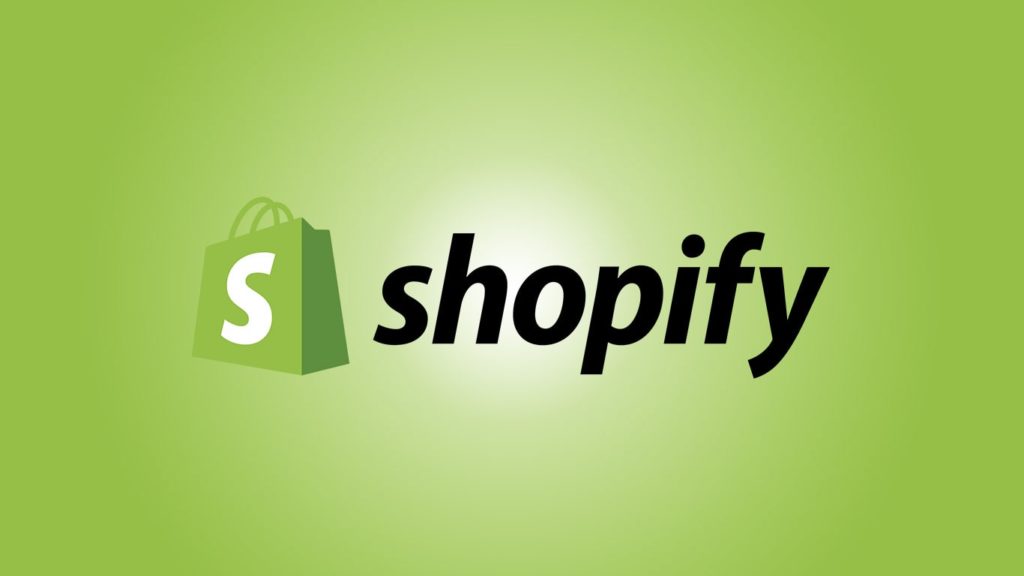
Shopify has turned around the world of eCommerce, being one of the preferred platforms to develop websites on the go for businesses and entrepreneurs. As of now, the platform is trusted by over 1.7 million businesses globally. Shopify has you covered whether you sell online, on social media, in a store, or out of the trunk of your car. You can start selling right now for just $29 per month. It’s best known for its ease of use and ability to customize website designs and themes even if you are not tech-savvy.
However, it can be hard to choose which one is best for you with so many options available. Here are the Best alternatives to Shopify to help you make a better decision.
Why shouldn’t you use Shopify?
If you own an online retail business or are thinking of running one anytime soon, then surely you have heard of Shopify. It is one of the leading e-commerce platforms on the market, with almost 2.1 million active users. It seems like a lot, and it is. Heavy traffic is one of the basic requirements when selecting a suitable e-commerce platform, such as Shopify. Thus, you must be confused when we ask you not to use it, and rightfully so.
But bear with us as we explain why Shopify might not be the best platform for your online business by pointing out a few negatives associated with it. These are the reasons to avoid using Shopify:
- Shopify is arguably one of the costliest platforms you can choose to host your online business. It follows a monthly payment model, and you still have to pay for add-ons.
- Customer support is also a bit lacking, and services like live chat and phone assistance are locked behind a paywall.
- Another prevalent issue is that it adopts a vendor lock-in system, meaning you are not free to migrate your store to a competing platform.
- The platform also lacks when it comes to customization, which can directly affect your sales.
- Furthermore, there is literally no content management in place, as it only allows you to host your store without any self-marketing.
- And finally, it also charges extra transaction fees for every order placed in your store.
List of Best Shopify Alternatives
Shopify is an excellent platform for small businesses but with some drawbacks. And this is why it’s not always the best option for larger businesses. It can be difficult to scale up your shop on Shopify, and you may need to use other platforms in conjunction with it.
To make the matter more complicated, Shopify is not as customizable as some other eCommerce platforms. You can’t change the code or design very much without hiring a developer. That’s why you need to look at the possible options available currently.
These are the top 12 Shopify alternatives –
1. Wix
Wix is a website builder that allows you to quickly create an online presence using a drag-and-drop interface—no coding or FTP expertise is required. To begin with, all you need is an email address to use Wix’s web hosting. You can build your own site for free if you don’t mind the advertisements.
Wix is the most popular online platform for small and medium-sized enterprises (SMEs) worldwide, with over 180 million users from more than 80 countries that choose Wix to power their company through its outstanding simplicity and utility.
With over 70 categories and 500+ design templates, Wix addresses almost every business type and requirement of any entrepreneur. This platform also offers handy tools to get your site noticed on Google; all in all, it’s a recommended Shopify Alternative you should have. Read our Wix review to learn more about this platform.

Pros
- User-friendly drag-and-drop interface.
- Email-based web hosting.
- Over 500 design templates.
- Versatile for various businesses.
- Simplified and practical.
Cons
- Advertisements in the free version.
- Restricted customization in the free version.
- Some design constraints.
- Subscription is required for advanced features.
- May not cater to complex web projects.
2. Weebly
Weebly is a simple site builder with a free option for domain registrations to SEO tools. It allows you to design and publish attractive, responsive sites, blogs, and eCommerce stores, but it could use more themes and a better photo repository.
The platform provides step-by-step instructions on creating and launching a website, and expert starter guides and planning tools to help you along the way. It’s a complete eCommerce solution that lets you simplify order management, transport, and payments.
Over 40 million people have used Weebly’s website builder and advanced eCommerce tools to build their ideal site. Cutting-edge mobile apps allow users to monitor performance, communicate with customers, and place store orders from anywhere.

Pros
- Intuitive site-building.
- Free domain registration option.
- Responsive site design.
- Expert guidance and tools.
- Comprehensive eCommerce solution.
Cons
- Limited themes and photo repository.
- Some feature gaps.
- May not support extensive customization.
- Tailored to specific business niches.
- Suitable only for certain business types.
3. Volusion
Volusion is a popular eCommerce platform that offers users an easy way to create and manage their online stores. It has all the features you need to run a successful online store, such as product management, inventory tracking, order management, shipping, etc. The platform also offers users a 14-day free trial, which has impressed around 180,000 entrepreneurs so far.
You can opt for its paid service at just $29 per month. You can quickly develop your own distinctive store using Volusion’s responsive themes and a robust site builder.
Volusion also offers many other services, including a platform that allows you to design and run your own online shop, manage product catalogs, create promotional campaigns, and more. According to Volusion, merchants using its platform have generated over $21 billion in sales.

Pros
- Effortless online store creation.
- Comprehensive eCommerce capabilities.
- 14-day free trial.
- Responsive themes.
- Streamlined order management.
Cons
- Tailored to specific industries.
- Monthly fees.
- May not accommodate all business scales.
- Limited international outreach.
- Transaction-related charges.
4. BigCommerce
BigCommerce is an eCommerce software provider based in the United States that went public on NASDAQ in 2013. The firm offers hosted, cloud-based technology to over 60,000 merchants across 150 nations through its platform.
Small and medium-sized companies can use the company’s platform for online store creation, search engine optimization (SEO), hosting, and marketing, as well as security. It’s most well-known for its Website Customization services, Search Engine Optimization and Analytics Optimization, Payment and Inventory Management, and Application Connections.
BigCommerce’s objective is to assist businesses in selling more at each stage of development, from small startups to mid-market firms to large enterprises. BigCommerce is a leading Open SaaS solution that allows businesses to develop, innovate, and grow their online presence. It has all the advantages of an eCommerce platform.

Pros
- Cloud-based technology.
- All-inclusive eCommerce services.
- Scalability for business growth.
- Website customization options.
- SEO, analytics, and more.
Cons
- Hosting costs may escalate.
- Complex for beginners.
- Limited user-friendly customization options.
- Limited to online business models.
- Transaction fees may apply.
5. Squarespace
Squarespace is a well-known provider of website creation tools, which has become increasingly popular among bloggers and small enterprises. The firm has served clients worldwide since its inception to help them grow their businesses. You can pick from any of our industry-leading website templates, designer typefaces, or color schemes that are most suited to your professional demands.
Squarespace allows you to select which tools you wish to install—whether it’s creating an online store, organizing services, or integrating your favorite third-party extensions. This platform also helps you stand out in marketing campaigns through on-brand email campaigns, SEO, analytics, and social tools that make it easy to grow your audience.

Pros
- Website creation tools.
- User-friendly templates.
- Customization possibilities.
- Marketing features.
- Suited for bloggers and small enterprises.
Cons
- Limited third-party extensions.
- Designed for specific business sectors.
- Transaction-related expenses.
- Regional limitations for Squarespace support.
- May not cater to all customization needs.
6. Magento
Founded in 2007, and acquired by Adobe in 2018, Magento is best for large businesses that need more support than most Shopify alternatives offer. This platform has many of the same features as Magento Community Edition. Still, it offers better performance and security because you do not have to install anything on your own web server.
However, this means you will need professional hosting with plenty of disk space in order to get started with Magento. If you already have a high-traffic website or are willing to pay extra for expert installation, then Magento can be an affordable choice for your business needs.
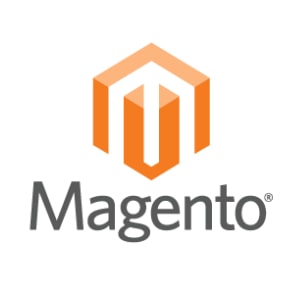
Pros
- Advanced functionalities.
- Enhanced performance and security.
- Tailored for larger enterprises.
- Eliminates self-installation hassles.
- Scalability for high traffic loads.
Cons
- Professional hosting prerequisites.
- Not ideal for smaller businesses.
- May not suit low-traffic sites.
- Complex setup for novices.
- Potential higher hosting costs.
7. Dukaan
Dukaan is an e-commerce platform that presents a comprehensive solution for B2C done right. As a SaaS, it allows users to incorporate their virtual, digital stores within the platform’s framework. These stores have not only a one-click-setup but are also scalable.
In terms of features, Dukaan impresses us with a plethora of powerful and practical features, all found in the dashboard. And since there is no need to study complicated codes, there is no learning curve. Other than digital stores, Dukaan also offers superior customization options. Users can access the online template library to make their shops unique.
Furthermore, these custom shops are mobile-oriented and have a faster loading speed. Lastly, any changes implemented are done instantaneously. There is no downtime. Hence, no loss in business.

Pros
- Comprehensive B2C solution.
- One-click store setup.
- Scalable digital shops.
- User-friendly customization.
- Mobile-focused with rapid loading.
Cons
- Limited to digital commerce.
- Constrained template choices.
- Tailored for mobile stores.
- Specialized to B2C enterprises.
- Limited to select currencies.
8. Shift4Shop
The creators of Shift4Shop, a cloud-hosted shopping cart software with robust capabilities and flexible pricing. The platform offers an infinite product storage feature, making it highly scalable for expanding organizations. Security is also top-quality, which is an added bonus with free use.
They start at $19/month and go up to $229/month, which gets you basic SEO tools, cart emails, discounts, subscriptions, personalized goods, drop-shipping, tracking, Facebook sync, and a slew of other features.
Keep in mind that there’s no product search function. This platform offers a wealth of options for your online store, so you’ll appreciate their adaptability and in-house web design service, which will customize your shop’s UI, UX, and SSL certificates for a reasonable price if you’re just getting started.

Pros
- Cloud-hosted shopping cart.
- Endless product storage.
- Flexible pricing options.
- Website design services.
- SSL certificates for enhanced security.
Cons
- Bandwidth and storage restrictions.
- Absence of product search functionality.
- Costs may increase with popularity.
- Limited free version features.
- Global presence is limited.
9. PinnacleCart
PinnacleCart is an advanced-level Shopify alternative that provides many eCommerce features, including shipping, tax management, inventory management, and mobile-friendly solutions for your business. It also offers a wide range of customization features so you can make your website look and feel the way you want.
You have the option of using PinnacleCart to host or self-hosting. It has SEO-friendly elements such as schema.org tags and unique URLs, such as /bestsellers/. Every plan includes an infinite number of products and categories.
If you want to use PinnacleCart, you’ll have a bandwidth and storage limit for their lowest $79.95 plan, so as your site gets more popular, you’ll either have to pay extra or upgrade to a higher plan that has unlimited bandwidth. Opt for a free trial first to experience whether it suits your needs or not.

Pros
- Advanced eCommerce features.
- Shipping, tax, and inventory management.
- Mobile-optimized solutions.
- Extensive customization possibilities.
- Diverse feature set.
Cons
- Bandwidth and storage limitations.
- Costs may surge with growing popularity.
- Limited product search capabilities.
- Specific to certain pricing plans.
10. OpenCart
OpenCart is on this list as a free alternative to Shopify. It offers a relatively compact UI with a modern take on the platform that can create professional-like websites, for free. The community is highly active and often helps new users with customization intakes.
OpenCart enjoys a strong user base with the addition of support for a hundred of thousands of third-party apps and add-ons. The features include its flexible nature that supports a variety of payment gateways, quick setup and launch, and an ideal interface. Similarly, on the downside, it has a few reasons such as not being that easy to use, and sometimes it can be too much to handle too quickly.
The best part, OpenCart is an open-source software. You can browse the OpenCart repo on GitHub to see more about the tool.
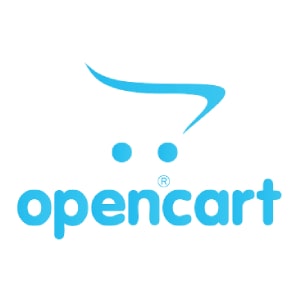
Pros
- No-cost platform.
- Active community support.
- Diverse payment gateways.
- Swift setup process.
- Flexible user interface.
Cons
- Not universally user-friendly.
- Specialized for distinct industries.
- Learning curve.
- Technical expertise may be required.
- Limited to certain currencies.
11. BigCartel
Due to its low cost, limitless bandwidth, inventory tracking, HTML and CSS customization, and necessary functions, BigCartel has become popular among artists. To be honest, it isn’t as feature-rich as Shopify, but it is less expensive and performs well for solopreneurs and small companies. It includes Google Analytics, Facebook integration, and PayPal acceptance, while setting up your shop takes little time, even if you lack technical knowledge.
BigCartel does not include a product search capability. Therefore, it’s best for enterprises with a small number of items. It is a budget-friendly option for Shopify since it lacks an inventory search function.
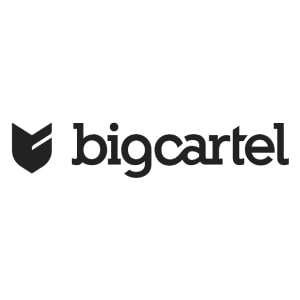
Pros
- Budget-friendly for solo entrepreneurs.
- Unlimited bandwidth.
- Efficient inventory tracking.
- Customization flexibility.
- Integration with Google Analytics and Facebook.
Cons
- Lack of product search capability.
- Suited for businesses with smaller inventories.
- May not suit extensive feature requirements.
- Lacks inventory search functionality.
- Economical but with limitations.
12. WooCommerce
For the fans of WordPress, WooCommerce is one of the ideal eCommerce solutions available. It’s open-source and has a high rating for user experience. Scaling it may be not easy, and if you want all the bells and whistles, you’ll have to invest in the premium features. Even with its modest $20 monthly cost, WordPress is an excellent platform for building websites.
It’s also possible to create an attractive site that can compete with premium carts without spending anything. You may build a mobile-friendly site and pay only for eCommerce hosting using WooCommerce and some minor editing. However, if your budget allows for extras, WooCommerce has Product Bundles starting at $49 that you may cherry-pick specific extensions.
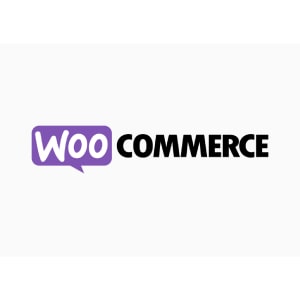
Pros
- Ideal for WordPress enthusiasts.
- Open-source nature.
- Highly rated user experience.
- Cost-effective solution.
- Mobile-responsive website construction.
Cons
- Potential complexities in scaling.
- Investment is required for premium features.
- May not be suitable for all enterprise sizes.
- Predominantly tailored to WordPress users.
- Customization expenses.
What do we recommend as a Shopify alternative?
Instead of Shopify, you can give our recommendations a try. As we have mentioned in the article, you can always go with Wix, a content management platform, that lets you build your own website, and that too for free. We even have a Wix review covered.
If you don’t like it, then you can also try Weebly, which is basically Shopify but with a content management system in place. Or you can choose PinnacleCart, which offers advanced control and other features that might come in handy down the line. And lastly, if you are using WordPress, we would love to recommend WooCommerce, which, although a bit pricey, is the most ideal choice.